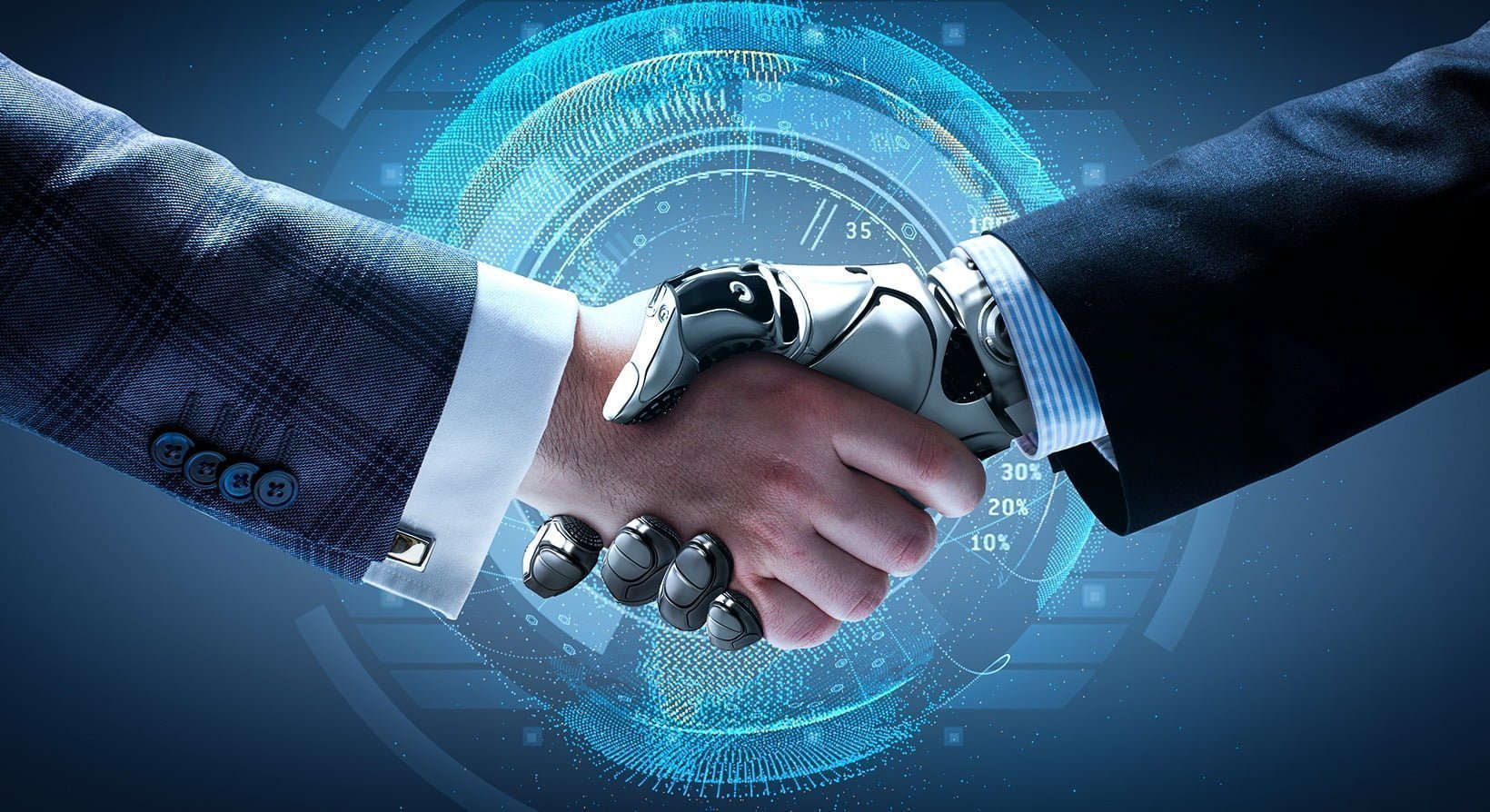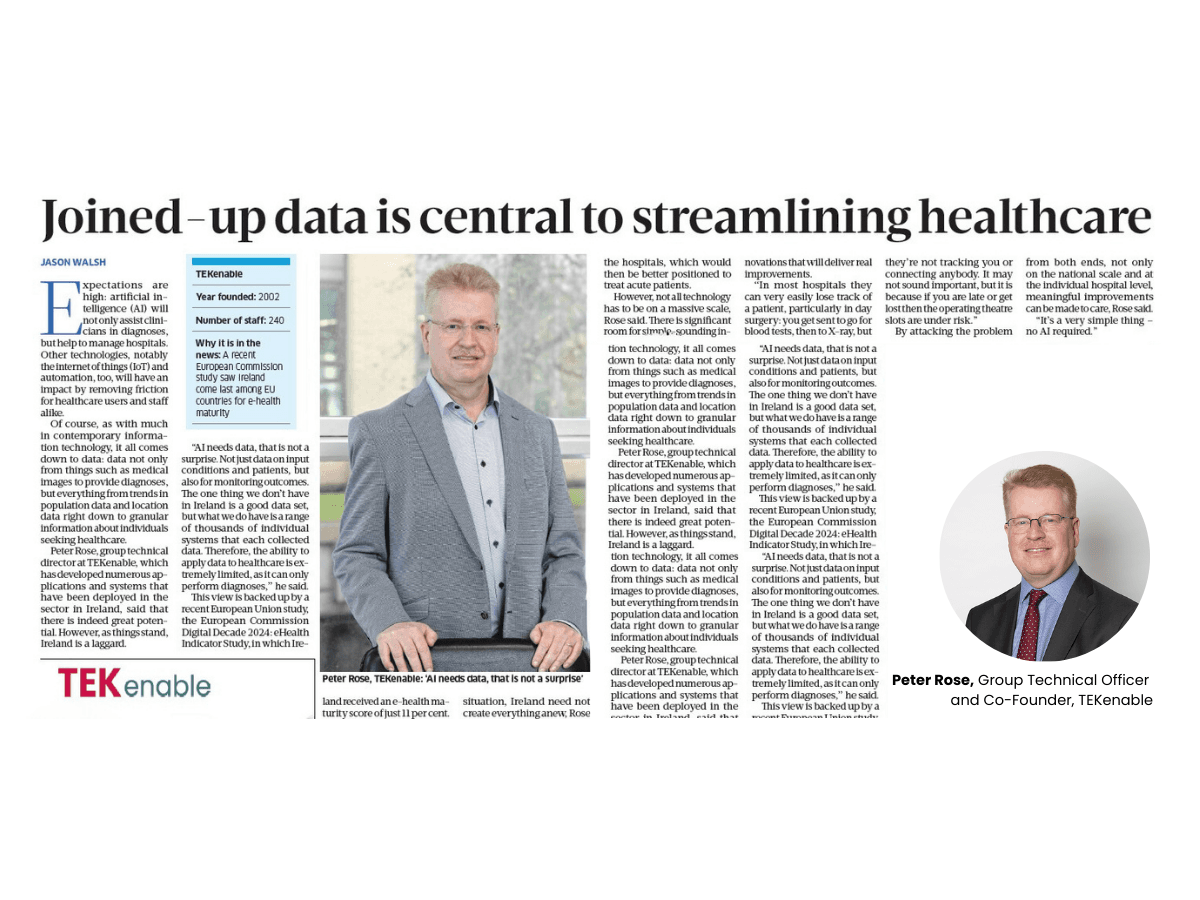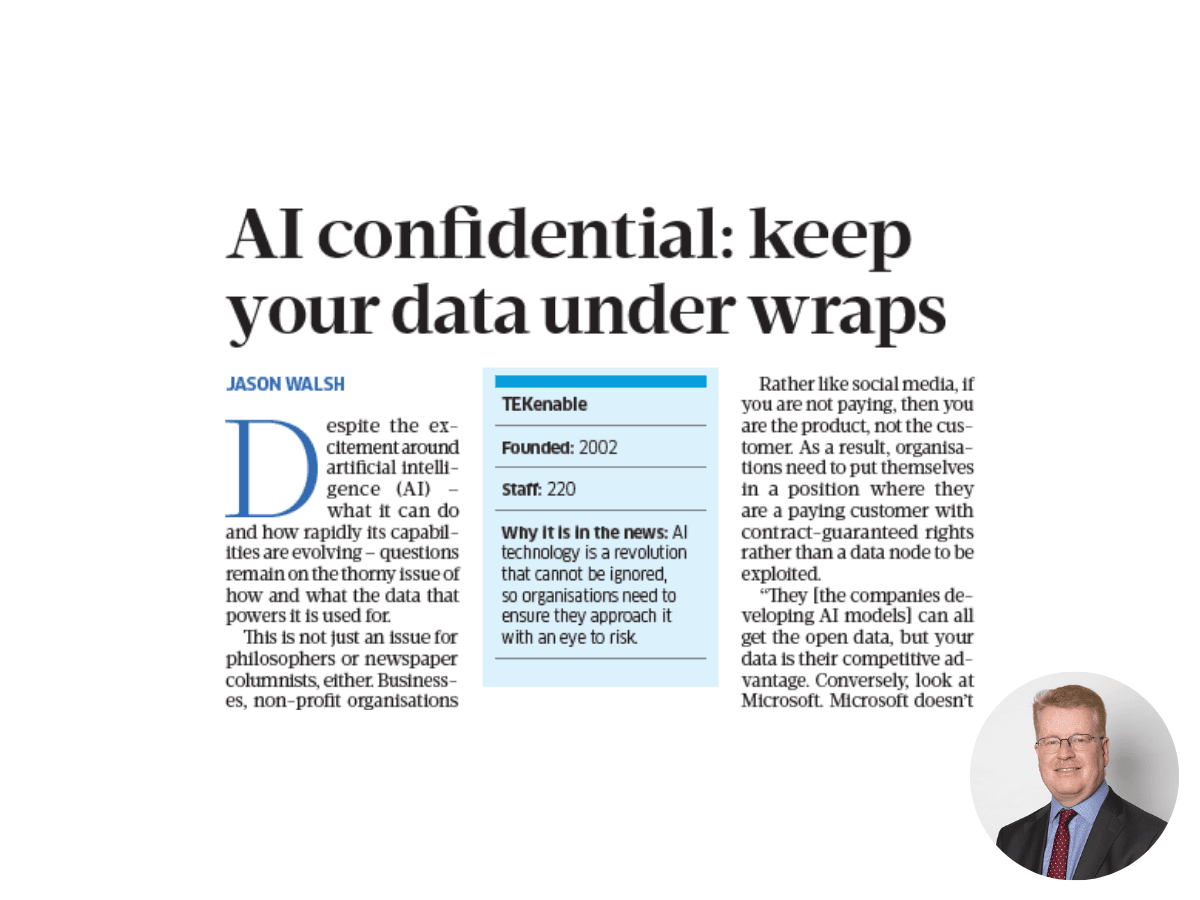Peter Rose, chief technology officer for TEKenable sees the role of AI in CRM as being about increasing the software’s ability to deliver insights. Correctly set up and configured, it can make a difference.
What AI can do for you in CRM is give you insights into the extent to which you have a relationship with a customer that is likely to deliver a sale from any given opportunity,” he said.
“For example, imagine that a company’s CRM system shows that there is an opportunity to sell €500,000-worth of software to a particular client. But you haven’t talked to that company in the last three weeks, you have only two contacts in there, you haven’t sent over a brochure and you don’t have a qualified budget.
“The chances are that you’re not going to close that sale. But the criteria for what is likely to lead to a sale and what is not are different for every organisation and every company they sell to.
While people typically visualise AI as the kind of technology that allows a computer to beat Garry Kasparov at chess, it can also be about learning and identifying simple patterns
Peter Rose, CTO TEKenable
“AI can look at your past sales patterns and services you offer, and it can make a judgment – based on past history – as to what the likelihood is that you will sell a particular offer to a particular business.”
According to Rose, the system TEKenable advocates – Microsoft Dynamics 365 – is fairly accurate, but any CRM system is only as good as the data points it has access to.

“It’ll do things like monitor your e-mail, so it can tell how often and how substantive a conversation is that you’re having with your potential customers. Based on that, it can derive an engagement level with that customer, and that’s one of the key performance indicators (KPIs) that feed into the algorithm,” he said.
“If your engagement is high, you’ve a better chance of selling to this customer than if your engagement was low.”
The message from Rose is that AI doesn’t always have to be complicated. While people typically visualise AI as the kind of technology that allows a computer to beat Garry Kasparov at chess, it can also be about learning and identifying simple patterns.
“When you win a sale, your AI-enabled CRM system will note that this KPI was high. When you lost a sale, this KPI was low, so it can identify a statistical correlation. It won’t always be right, but generally it’s not far from the mark,” said Rose.
“What’s powerful about Microsoft Dynamics 365 is that it’s part of the broader Microsoft ecosystem, which takes in everything from e-mail to Teams to instant messaging to every data point you record in all your systems. It knows how your organisation is interacting with your potential customers and it can use that information to predict things you couldn’t, because no one individual in your organisation has access to that totality of information.”
The interview text reproduced here first appeared in Business Post on December 1st, 2019.





